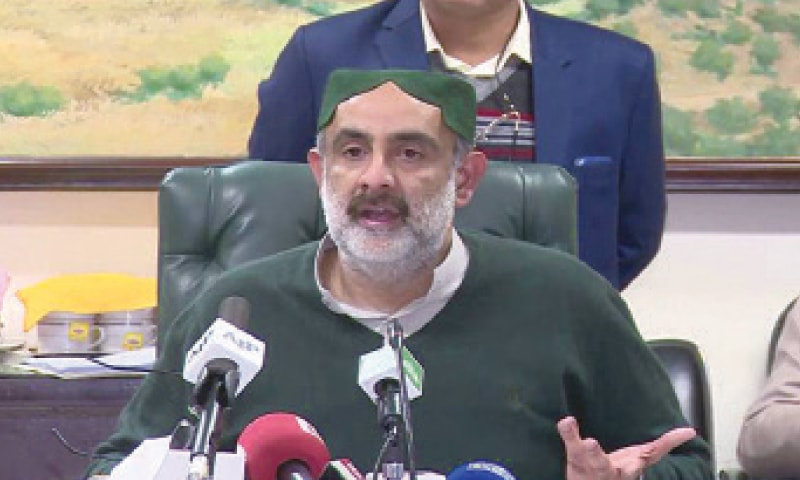SAHIBZADA Muhammad Sultan, federal minister for the Ministry of National Food Security and Research, talked to Dawn from his home town Jhung in Southern Punjab. He expressed confidence that the PTI government will resolve the long standing issues of the farming community that have held agriculture growth potential hostage for so long.
The minister was preoccupied with attending to the post-stormy weather situation that damaged the standing crop in several areas of the country. Perturbed by losses incurred by growers across the country owing to harsh rains, he was working on a strategy to contain losses and ensure that the affected growers get the support they deserve from the government.
“I intend to go to affected areas for a realistic damage assessment to put up a case for a relief package for those who lost their crop and incurred unsustainable losses,” he said.
The three time MNA, following in his father’s footsteps, entered parliamentary politics in 2002 by winning a national assembly seat on the PML-Q ticket. In 2008, despite PPP groundswell after Benazir Bhutto’s assassination, he won again from the same platform.
He lost the election in 2013 when he contested on the PML-N ticket but made a comeback with a bang in the National Assembly on a PTI ticket in 2018. Many consider him to be a key politician who turned Jhung into a PTI stronghold by bagging all national and provincial assembly seats.
The minister, with a landed background, was confident that the full potential of the rural economy can be realised by implementing the food security policy with the active support of the provinces.
Earlier a set of questions were mailed to the Ministry of National Food Security and Research seeking the minister’s views. Citing the pressing current situation and a close deadline, the responses to three out of five questions were mailed back that are reproduced below:
Is Pakistan food secure? Do we have sufficient stocks of essentials to brave a sudden drop in production in case of some calamity?
SMMS: Yes, Pakistan is food secure. We do have sufficient stocks of essentials in case of any challenge. For major crops
like wheat, sugar cane, maize and rice, Pakistan is not only self-sufficient, it produces a surplus.
Do you have a plan to reduce dependence on imports of edibles, particularly oil and pulses?
SMMS: Yes, the ministry is working with the provinces to launch various projects in the agriculture sector for its betterment. One of the goals is to reduce the import bill of oil and pulses. We want to produce indigenous oilseeds to achieve self-sufficiency.
Post-18th Amendment, how effectively is your ministry working with the provinces to achieve food security?
SMMS: For the first time since the devolution, the ministry is working in collaboration with the provinces to launch projects worth Rs290 billion of which the federal contribution is around Rs90bn. These projects will be spread over the next four years. —AS
Published in Dawn, The Business and Finance Weekly, April 22nd, 2019














































Dear visitor, the comments section is undergoing an overhaul and will return soon.